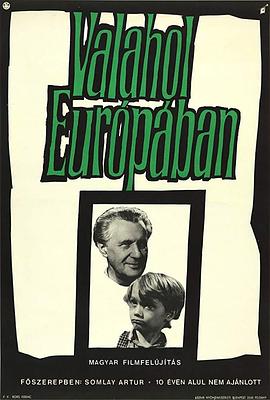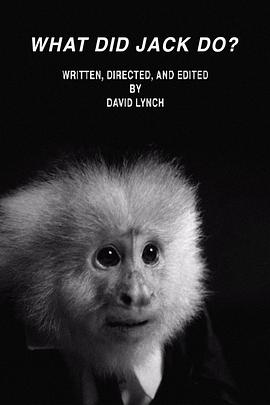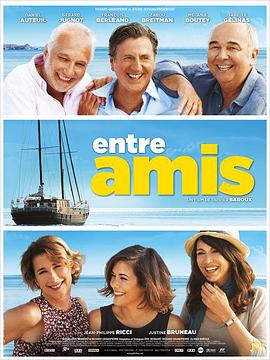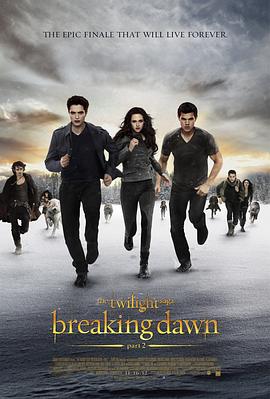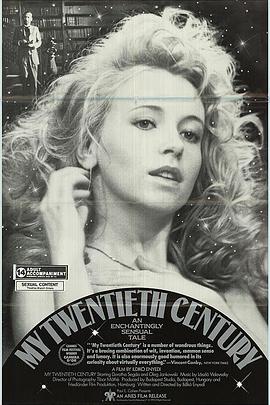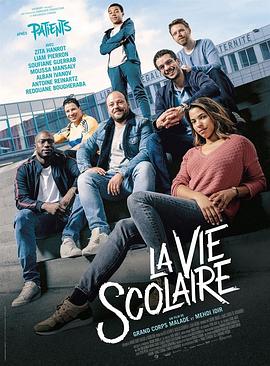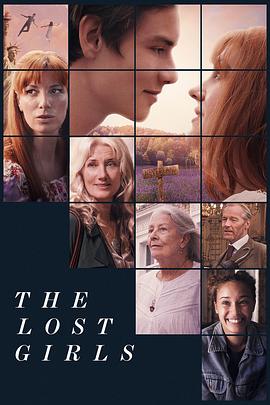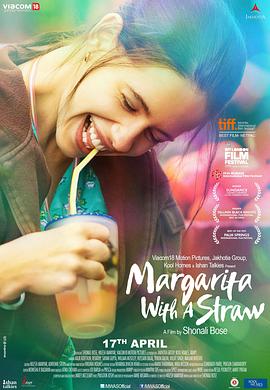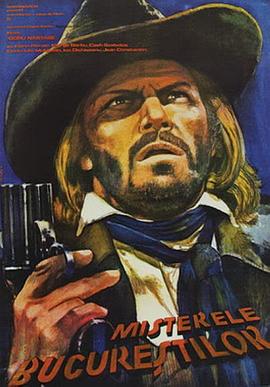备注:已完结
类型:剧情片
主演:Artúr Somlay Miklós Gábor Zsuzsa Bá
语言:其它
年代:未知
简介:Somewhere in the remote region, the war ends. In the midst of ruined cities and houses in the streets, in rural hamlets, everywhere where people still live, are children who have lost their homes and parents. Abandoned, hungry, and in rags, defenseless and humiliated, they wander through the world. Hunger drives them. Little streams of orphans merge into a river which rushes forward and submerges everything in its path. The children do not know any feeling; they know only the world of their enemies. They fight, steal, struggle for a mouthful of food, and violence is merely a means to get it. A gang led by Cahoun finds a refuge in an abandoned castle and encounters an old composer who has voluntarily retired into solitude from a world of hatred, treason, and crime. How can they find a common ground, how can they become mutual friends The castle becomes their hiding place but possibly it will also be their first home which they may organize and must defend. But even for this, the price will be very high. To this simple story, the journalist, writer, poet, scriptwriter, movie director, and film theoretician Béla Balázs applied many years of experience. He and the director Géza Radványi created a work which opened a new postwar chapter in Hungarian film. Surprisingly, this film has not lost any of its impact over the years, especially on a profound philosophical level. That is to say, it is not merely a movie about war; it is not important in what location and in what period of time it takes place. It is a story outside of time about the joyless fate of children who pay dearly for the cruel war games of adults. At the time it was premiered, the movie was enthusiastically received by the critics. The main roles were taken by streetwise boys of a children's group who created their roles improvisationally in close contact with a few professional actors, and in the children's acting their own fresh experience of war's turmoil appears to be reflected. At the same time, their performance fits admirably into the mosaic of a very complex movie language. Balázs's influence revealed itself, above all, in the introductory sequences an air raid on an amusement park, seen in a montage of dramatic situations evoking the last spasms of war, where, undoubtedly, we discern the influence of classical Soviet cinematography. Shooting, the boy's escape, the locomotive's wheels, the shadows of soldiers with submachine guns, the sound of a whistle—the images are linked together in abrupt sequences in which varying shots and expressive sharp sounds are emphasized. A perfectly planned screenplay avoided all elements of sentimentality, time-worn stereotypes of wronged children, romanticism and cheap simplification. The authors succeeded in bridging the perilous dramatic abyss of the metamorphosis of a children's community. Their telling of the story (the scene of pillaging, the assault on the castle, etc) independently introduced some neorealist elements which, at that time, were being propagated in Italy by De Sica, Rossellini, and other film artists. The rebukes of contemporary critics, who called attention to formalism for its own sake have been forgotten. The masterly art of cameraman Barnabás Hegyi gives vitality to the poetic images. His angle shots of the children, his composition of scenes in the castle interior, are a living document of the times, and underline the atmosphere and the characters of the protagonists. The success of the picture was also enhanced by the musical art of composer Dénes Buday who, in tense situations, inserted the theme of the Marseilaise into the movie's structure, as a motive of community unification, as an expression of friendship and the possibility of understanding. Valahol Europaban is the first significant postwar Hungarian film. It originated in a relaxed atmosphere, replete with joy and euphoria, and it includes these elements in order to demonstrate the strength of humanism, tolerance, and friendship. It represents a general condemnation of war anywhere in the world, in any form.
备注:已完结
类型:喜剧片
主演:丹尼尔·奥特伊 热拉尔·朱尼奥 François Berléand Z
导演:奥利维埃·巴鲁
语言:法语
年代:未知
简介:Richard, Gilles et Philippe sont amis depuis près de cinquante ans. Le temps d’un été, ils embarquent avec leurs compagnes sur un magnifique voilier pour une croisière vers la Corse. Mais la cohabitation à bord d’un bateau n’est pas toujours facile. D’autant que chaque couple a ses problèmes, et que la météo leur réserve de grosses surprises... Entre rires et confessions, griefs et jalousies vont remonter à la surface. Chacun va devoir faire le point sur sa vie et sur ses relations aux autres. L’amitié résistera-t-elle au gros temps
备注:已完结
类型:剧情片
主演:克里斯汀·斯图尔特 罗伯特·帕丁森 泰勒·洛特纳 彼得·费辛利 伊莉莎
导演:比尔·康顿
语言:英语
年代:未知
简介:在远离喧嚣的崇山峻岭之中,原始密林中央,贝拉(克里斯汀·斯图尔特Kristen Stewart 饰)与爱人爱德华(罗伯特·帕丁森 Robert Pattinson 饰)以及友人们展开难得的幸福生活。贝拉正在学习控制体内躁动的吸血鬼欲望,因为她即将面对那个她和爱人共同孕育出来的小生命蕾妮斯梅。一切都得到修复与改善,小女孩在父母长辈的呵护下快乐成长。但是她们离群索居的秘密最终被艾瑞娜(玛姬·格蕾斯 Margaret Grace 饰)窥见。 传说吸血鬼孩童因心智不成熟容易带来难以预料的灾难,因此必须被族人残酷抹杀。听取了艾瑞娜的报告,远在意大利的沃尔图里家族渐次逼近。贝拉坚信女儿绝非血族,云集世界各地的库仑家族与狼族相继云集密林木屋,一场史无前例的战争即将展开……
备注:已完结
类型:喜剧片
主演:亚当·佩里 Lucie Guest 蒂琪娜·阿诺 迈克尔·米赞宁 Do
导演:杰伊·卡拉斯
语言:英语
年代:未知
简介:11 岁的里欧·汤普森(塞斯·凯尔饰)发现了一个神奇的摔跤面具,这个面具赋予了他超强的力量,他借此参加了美国摔角联盟的比赛。在奶奶(蒂琪娜·阿诺饰)的支持下,里欧不惜一切代价想要实现成为美国摔角联盟超级明星的梦想。在擂台上,面对着传奇般的挑战者,一个孩子能一举拿下吗?《摔角小将》由杰伊·卡拉斯执导,联合主演有亚当·佩里、肯·马里诺,和美国摔角联盟超级明星科菲·金士顿、迈克尔·米赞宁(米兹)、希莫斯,以及巴巴通德·艾布西,他饰演里欧的终极对手(一个名叫山姆森的巨型摔跤手)。
备注:已完结
类型:喜剧片
主演:琪塔·昂赫 苏菲恩·古瑞博 穆萨·曼斯莱 阿尔班·伊万诺夫 安托万·赖
语言:法语
年代:未知
简介:在离法国巴黎不远的一个郊区小镇中学里,女主作为新官上任的副校长,对新工作充满责任心和热忱。而她面临着多年学校遗留的顽疾教育问题,即差班生管理的问题,颇为困扰。此种教育制度严重限制了学生的健康成长,后来经过师生们的共同努力,取消了差班制。针对“差生”的天分和喜好,把他们分配到了特助班,因材施教,让他们发挥特长,得到了应有的尊重和正确的指导。
备注:已完结
类型:剧情片
主演:路易斯·帕特里奇 乔莉·理查德森 瓦妮莎·雷德格雷夫 伊恩·格雷 朱利
语言:英语
年代:未知
简介:艾伦·伯斯汀、艾玛·汤普森将出演奇幻新片[迷失的女人](The Lost Girls,暂译)。本片改编自J·M·巴利的小说,瓦莱里奥·德·鲍里斯将自编自导自演这部电影。汤普森的女儿Gaia Wise也将出演本片。故事将讲述四代可爱的女性在与彼得·潘在梦幻岛的冒险经历后的挣扎,将聚焦温迪(德·鲍里斯饰)在与潘的奇幻之旅后,如何努力保持自己的创作精神。就像她的祖母(伯斯汀饰)和母亲简(汤普森饰)一样,温迪必须摆脱潘对她的控制,以及潘拼命想让她信守的承诺。当她的女儿贝瑞(Wise饰)进入潘的势力范围,温迪必须战斗,以挽救她与她的女儿的关系。
备注:已完结
类型:剧情片
主演:Teofil Vâlcu Constantin Dinulescu T
语言:其它
年代:未知
简介:影片以18世纪罗马尼亚的地下秘密组织“兄弟会”为线索,该组织密谋推翻贵族政府为目的。影片拍摄时期为罗马尼亚共产党执政时期,对“兄弟会”进行颂扬。当时的罗马尼亚受到法国大革命的影响,民族主义运动兴起。片中的“兄弟会”酝酿发动革命推翻贵族统治,而黄玫瑰则帮助 “兄弟会”与贵族军队作战。影片本来要拍成《007》那样的系列电影,但是因为后来罗马尼亚政局变化,电影业私有化,最后只拍到了第八部。 影片风格是美国西部片式的。男主角马尔杰拉图神出鬼没,神勇无比,为“兄弟会”出生入死。他不停地嗑瓜子动作,成为他的招牌。扮演马尔杰拉图的演员叫弗洛林·彼耶尔西克,据说,他在罗马尼亚电影表演界的地位,与现在的罗马尼亚电影创作协会主席塞尔裘·尼古莱斯库相当。片中的黄玫瑰很像个美国牛仔。比如,他的枪法很好,还会趴在地上听马蹄声,而且片中还出现了西部片必然会有的场面:群马追击四轮马车和酒馆里的群架。唯一不同的是,这个牛仔不爱叼雪茄,却喜欢嗑瓜子。他嗑瓜子的镜头深深印在了中国人的脑海里,即使他们早已忘记了影片的剧情,也不会忘记这个动作。 女主角阿卡塔是著名的演员,性感、风流、直率、刚勇、不择手段,为了盖剧院筹集资金而为当局效劳,成为“黄玫瑰”的劲敌。阿卡塔的扮演着MARGA BARBU是罗马尼亚享有盛誉的著名演员,是该片编剧的妻子。她于2009.2.28死于心脏病。
本站只提供WEB页面服务,本站不存储、不制作任何视频,不承担任何由于内容的合法性及健康性所引起的争议和法律责任。
若本站收录内容侵犯了您的权益,请附说明联系邮箱,本站将第一时间处理。
举报热线:0991-3532125 涉未成年人举报电话:0991-3532125
Copyright© 2025 飘花影视-热播高清免费在线电影-永久VIP电影4K观影站 All Rights Reserved
